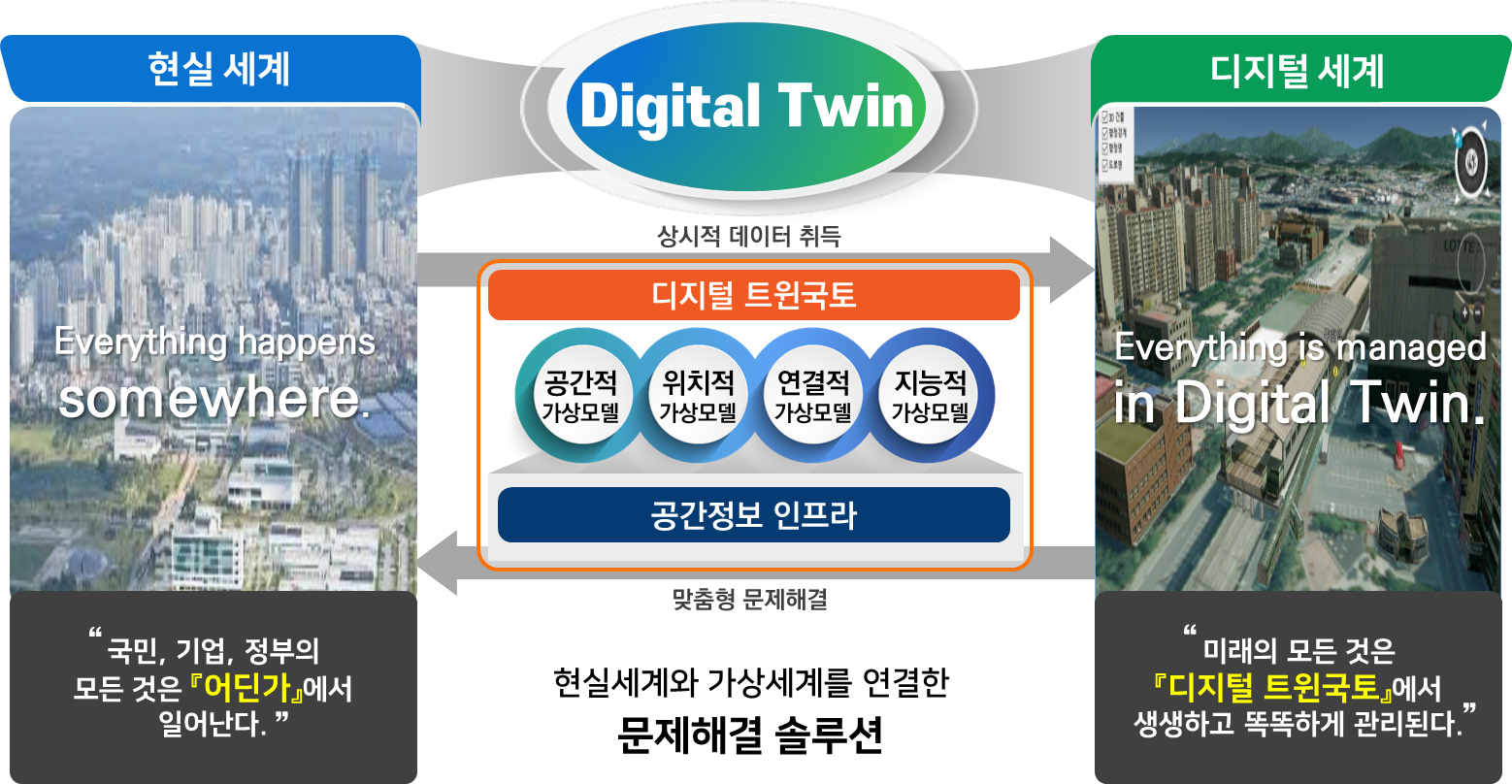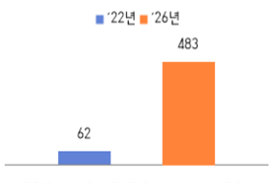– 24nd Digital Twin Local Local Government Pilot Project Competition from the 2th –
□ The Ministry of Land, Infrastructure, and Transport announced that it would hold a public contest for the 2nd digital twin national land pilot project from June 6 (Fri) to July 24 (Fri) to discover and experiment with various digital twin services for early completion of the digital twin national land.
□ Digital twin national land refers to a technology that supports the resolution of complex and diverse urban problems through simulations by three-dimensionally realizing the real land in a virtual space, linking various administrative and attribute information to it.
Digital Twin Land Concept Map

Estimated size of the global geospatial information market (M&M)

Markets and Markets, '20
ㅇ In order to complete the digital twin land, which will become the infrastructure of the future high-tech industry, the government is promoting the first pilot project in '21 with the purpose of discovering and testing the simulation function. Is expected.
□ This second pilot project is planned to be carried out by partially reorganizing and supplementing the competition method in order to discover more diverse and usable business models based on the experience of the first pilot project.
□ The target of the pilot project contest is to select a total of 7 projects from all local governments including metropolitan areas (special/metropolitan cities/do/special self-governing cities/special self-governing provinces) and basic (si/gun/gu) nationwide.
ㅇ Applications can be divided into five categories: transportation, urban planning and management, administrative licensing support, disaster safety, and environment. Local governments wishing to apply can select a field of application, write a business plan according to the characteristics of each local government, and apply.
ㅇ The evaluation criteria consist of utility of project contents (50 points), innovativeness (30 points), and local government’s activeness (20 points). This year, the existing evaluation criteria were supplemented by adjusting evaluation items and introducing an additional point system* to induce more diverse and novel service functions.
* Active use of existing spatial data and three additional points are given if the conditions for collaboration with related organizations are met
□ Contest applications are scheduled to be accepted from June 6th (Fri) to July 24nd (Fri), and the final selection will be made in August after a written evaluation (7st) and presentation evaluation (22nd) by the evaluation committee composed of digital twin related experts.
ㅇ Selected local governments can receive up to KRW 7 million in national treasury support for each task (local budget 5:5 matching), and the detailed competition plan and details required for application can be checked and downloaded from the Ministry of Land, Infrastructure, and Transport website (www.molit.go.kr) from June 6 (Fri).
□ In this competition, a business briefing session is scheduled (Ministry of Land, Infrastructure, and Transport auditorium at 22.7.4:14 on July XNUMX, XNUMXnd) to help the participating local governments understand and successfully promote the pilot project. Anyone interested in the digital twin national land pilot project can participate in addition to the public officials in charge.
□ Ministry of Land, Infrastructure, and Transport Minister of Land, Infrastructure and Transport Joo-yeop Kang said, “Through this pilot project, we hope that digital twin technology will be used in more diverse public areas such as urban planning and transportation, and that it will serve as an opportunity to expand to the private sector in the future. I look forward to it,” he said.



